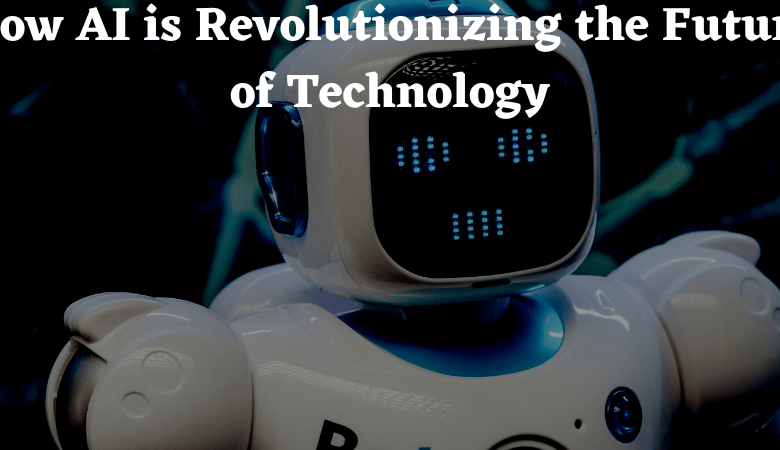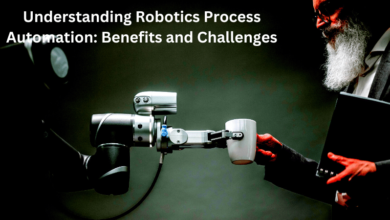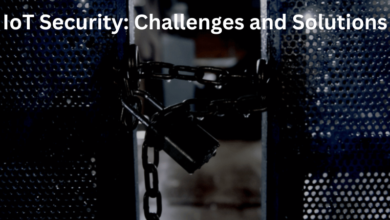How AI is Revolutionizing the Future of Technology

AI-Technology is always evolving and changing, which is why it’s so important for businesses to keep up. And with new technologies comes new ways of doing things, which can often be more efficient and effective. One such technology that is changing the way we do things is artificial intelligence (AI). AI isn’t just a nifty piece of software; it’s actually revolutionizing many industries, from healthcare to manufacturing. In this blog post, we will explore how AI is changing the future of technology and what businesses can do to take advantage of it. From Industry 4.0 to IoT, read on to learn more about the transformative power of AI.
What is AI?
Artificial intelligence (AI) is a field of computer science and engineering that deals with the creation of intelligent agents, which are systems that can reason, learn, and act autonomously. AI research is focused on creating software that can perform any task given to it by a human user. The goal of AI is to create machines that are capable of independent thought, and can interact with humans in ways that are natural for them.
The field of AI has come a long way in recent years. Early versions of AI were limited in their ability to understand and respond to complicated questions. Today, however, there are a number of programs known as “deep learning” algorithms that are able to process large amounts of data and improve their accuracy over time. This has led to the development of more sophisticated AI applications, such as self-driving cars and chatbots that can handle complex queries from users.
There are several different areas where AI is being used today. Some examples include natural language processing, image recognition, and machine learning. In the future, it is likely that AI will be used more extensively in areas such as healthcare, finance, and manufacturing. As AI becomes more sophisticated, it will become easier for machines to carry out complex tasks on their own without requiring human intervention. This could have far-reaching implications for the future of technology as we know it!
How is AI Revolutionizing the Future of Technology?
Artificial intelligence (AI) is revolutionizing the future of technology by making it easier for people to interact with technology, and helping machines become more intelligent. AI is able to learn and understand complex tasks faster than humans, making it a powerful tool for businesses and individuals.
AI is already transforming many industries, including healthcare, transportation, finance, and manufacturing. It’s also being used in areas like education and natural language processing (NLP). NLP is the ability to interpret and generate human-readable text from unstructured data such as images or videos.
One of the most important applications of AI is machine learning. Machine learning is a technique that allows computers to “learn” from data by themselves. This means that AI can be trained to recognize patterns in data without being programmed specifically for that task.
This capability has led to widespread use of AI in fields like finance, healthcare, and marketing. For example, machine learning can help financial institutions identify frauds more quickly. It can also help doctors diagnose illnesses more accurately using medical images. And it can help companies target advertising campaigns more effectively.
AI also has potential implications for our daily lives beyond the workplace. For example, AI could be used in driverless cars to make decisions on how best to route a person around traffic congestion or avoid accidents. And it could be used in social media platforms like Facebook or Twitter to recommend content or friends based on your interests.
Benefits of AI for Businesses and Individuals
One of the most exciting and transformative developments in technology is artificial intelligence (AI). AI has the potential to revolutionize many aspects of our lives and businesses. Here are just a few ways AI is already being used in business:
–AI can help businesses automate tasks and processes, making them more efficient and productive.
-AI can provide insights into customer behavior that can help businesses improve their marketing campaigns and sales efforts.
-AI can help businesses identify and reduce costs associated with unnecessary paperwork or administrative tasks.
-AI can help businesses create new products or services by analyzing large data sets.
There are many benefits to using AI in business, but it also has potential consequences. For example, if a business relies too much on AI for automation or decision making, it may become vulnerable to cyberattacks or other disruptions. In addition, as AI becomes more sophisticated and widespread, individuals may experience changes in their jobs that they cannot fully understand or anticipate. As with any new technology, employers will need to be prepared for both positive and negative effects of using AI in the workplace before implementing it
How to Implement AI in Your Organization
AI is revolutionizing the future of technology, and it’s important that your organization begin to implement it now if you want to stay ahead of the curve. Here are five ways AI is changing the way we work:
1. AI is making it easier to find and identify patterns in data.
2. AI is allowing us to process and analyze data much faster than ever before.
3. AI is providing us with more personalized recommendations based on our past behavior.
4. AI is helping us develop smarter algorithms andbot protocols that can automate complex tasks.
5. And finally, AI has the potential to completely transform how we interact with technology, from how we use apps and websites to how we build products and services
How Does AI Work?
One of the most significant advancements in AI is its ability to learn and understand natural language. Initially, this was done by having a human act as a “supervisor” for the AI system, interpreting what it had learned and providing feedback. However, more recent advancements in AI now allow it to “learn on its own.” This means that AI can analyze large amounts of data and develop its own understanding of concepts and relationships within it. This makes it able to create its own solutions or predictions based on the information it has learned.
Additionally, AI has the ability to “adapt” or “evolve” over time. This means that it can improve upon its abilities based on what it encounters in its environment. In some cases, this adaptation can be manual – for example, when a doctor reviews patient medical records and makes recommendations for treatment. But increasingly, AI is being adapted automatically through machine learning algorithms. This allows systems to get better at dealing with new complexities as they arise without requiring any intervention from humans.
AI has already started to impact many areas of our lives; from transportation to healthcare. And while there are certainly concerns about how widespread these impacts will be and whether they are good for us, overall I believe that they are definitely positive developments that will continue to evolve over time.
Benefits of AI
AI is revolutionizing the future of technology by providing users with a more efficient and personalized experience. By automating certain tasks, AI allows users to spend their time on more important activities. Additionally, AI can help businesses identify and resolve issues more quickly.
As AI continues to evolve, it will provide even more benefits for both individuals and businesses. Some of the most significant changes that AI will bring about include:
• Increased Efficiency: Automated systems are often more efficient than human-led ones due to their reliance on algorithms and data rather than humans’ judgment. This increased efficiency can save companies time and money, making them more competitive in the marketplace.
• Personalized Experiences: With personalization, users will be able to receive a unique experience based on their preferences and needs. This means that no two users will receive the same service or product – giving them greater control over their own lives.
• Improved Security: By automatically identifying potential security risks, AI can help protect businesses against cyberattacks. In addition, by automatically learning from previous experiences, AI can become even more effective at protecting data and systems in the future.
Disadvantages of AI
As AI technology continues to evolve, there are certain disadvantages to consider. For one, artificial intelligence could lead to the automation of many jobs, leaving humans with fewer employment options. Additionally, AI could be weaponized and used in potentially harmful ways, such as by dictators or terrorists. And finally, as AI becomes more pervasive and knowledgeable, it could become difficult for humans to understand and control it.
Conclusion
As technology advances at an exponential rate, so too does the potential for AI to revolutionize our world. From autonomous vehicles to intelligent home assistants, AI has the potential to change everything from how we commute to how we shop and bank. While some may be concerned about the implications of widespread adoption of AI, others are excited by its potential and see it as a key driver of future economic growth. So whatever your opinion on AI, one thing is for sure – the future looks bright!




